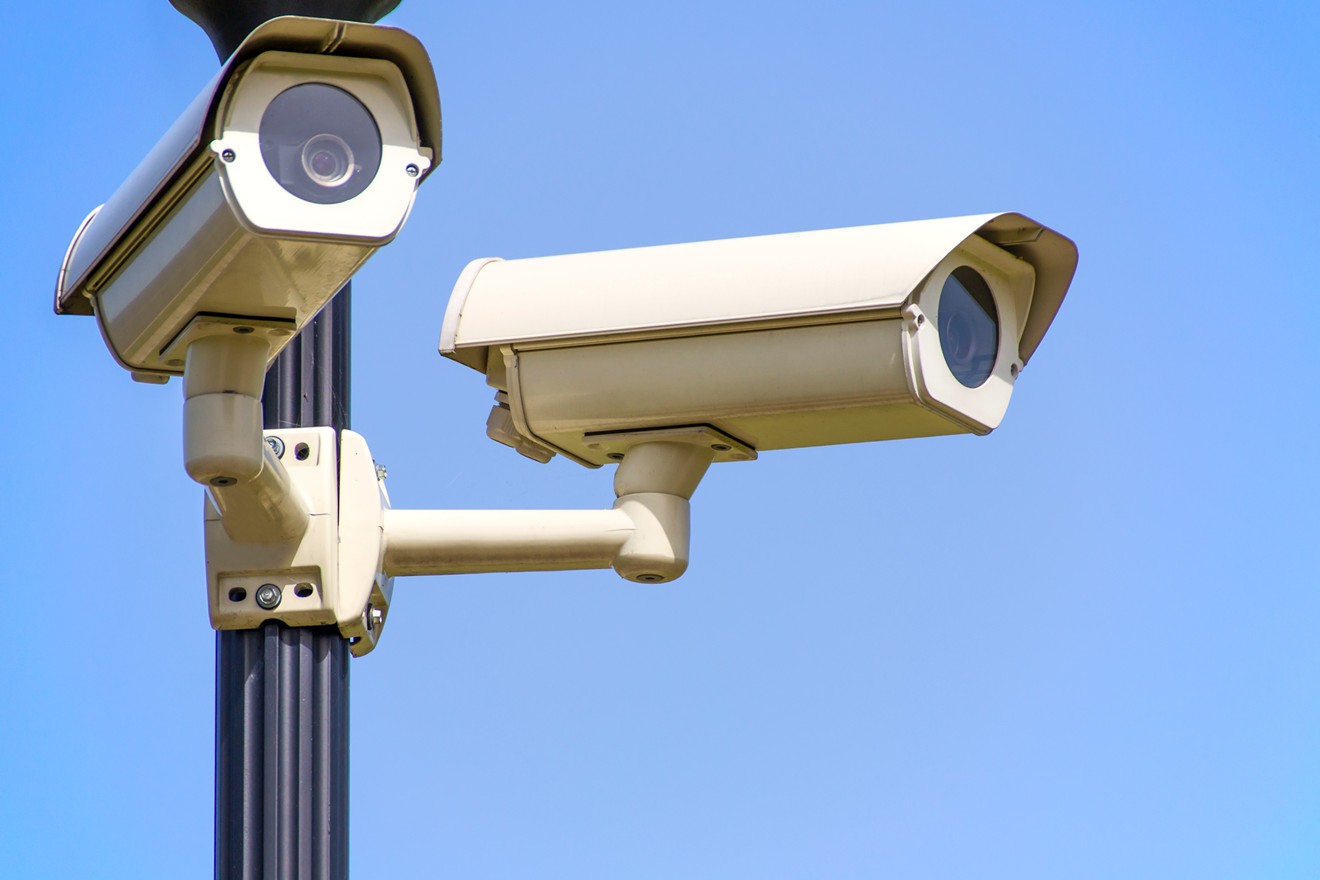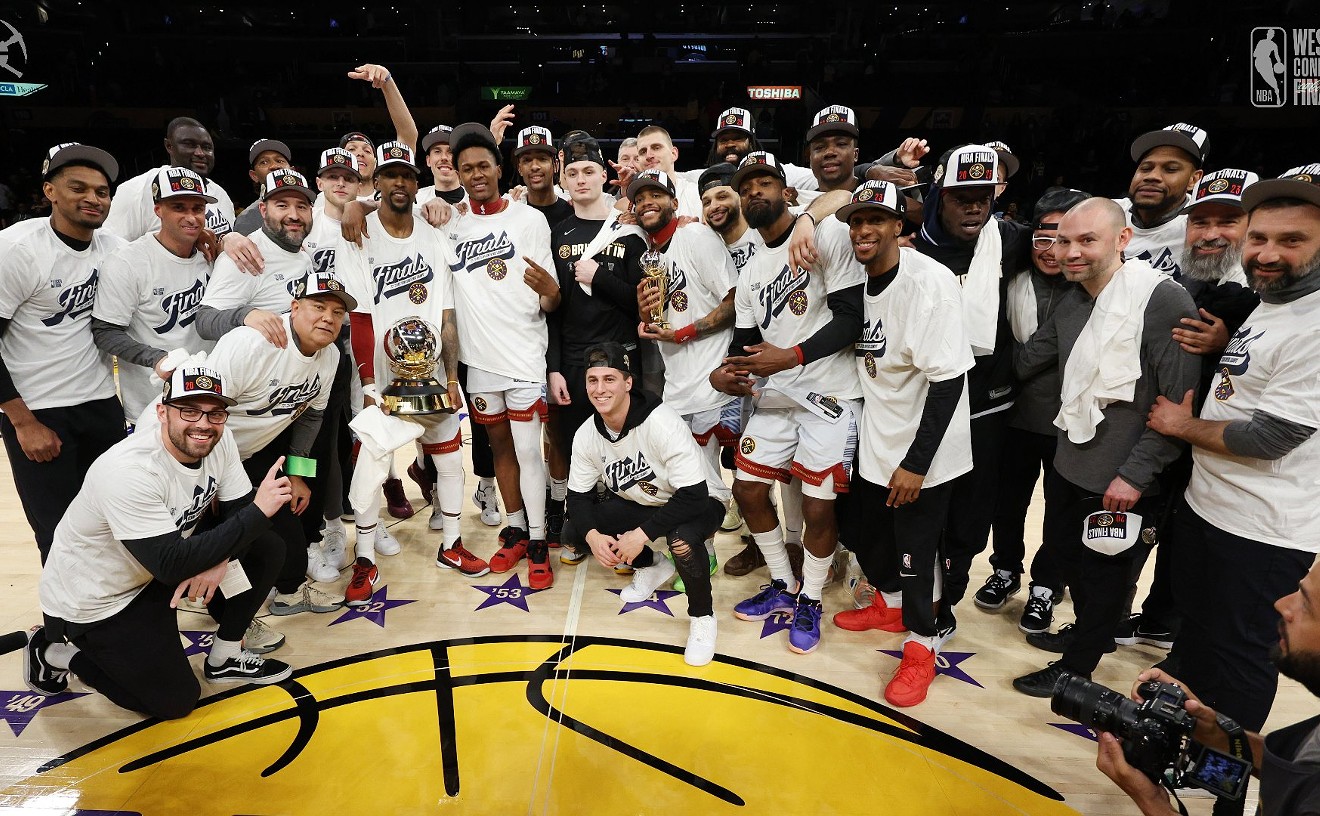In his dystopian novel 1984, George Orwell warned of a future wherein the government was always surveilling its citizens. Taking a page out of his book, a group of concerned citizens will begin gathering signatures to put 5280 not 1984 on the Denver ballot. The initiative would ban the city and county from using any type of facial recognition technology.
Denver Department of Public Safety spokeswoman Kelli Christensen says law enforcement doesn't utilize facial recognition surveillance technology. The Denver Police Department says that it is not considering using the technology, either. Facial recognition technology uses an algorithm to automatically identify people in camera feeds. Faces can then be matched with existing arrest warrants.
"We are not using facial recognition in any of Denver’s public safety agencies," Christensen wrote in an email to Westword.
"The city doesn’t have any resources allocated toward it, and I’m looking to keep it that way," says Connor Swatling, a member of the initiative's committee. Swatling and his fellow signature-gatherers will need to submit 8,265 valid signatures of registered Denver voters by May 4 of next year to get on the November 2020 ballot.
Backers argue that facial recognition technology used by law enforcement elsewhere is an invasion of privacy and could even be biased against minorities. According to a study conducted by MIT and Stanford, "In the researchers’ experiments, three [commercially released facial-analysis programs'] error rates in determining the gender of light-skinned men were never worse than 0.8 percent. For darker-skinned women, however, the error rates ballooned — to more than 20 percent in one case and more than 34 percent in the other two."
"I have a lot of respect for law enforcement. The job they do is often difficult and thankless," says Swatling, who is a systems analyst at a financial services company in Greenwood Village. "But we should try to make their jobs easier. This technology doesn’t do that. It’s difficult to integrate, it’s vulnerable to hackers and abuse, and you’re going to create a more systemic sense of distrust in police, and I don’t think that’s a good look for Denver."
"The last thing I want to do is give a tool to police that will continue the bias against people of color," says Ean Tafoya, a Denver activist who is serving on the initiative's committee. Tafoya has worked on other ballot petitions, including the Green Roof Initiative.
The initiative would also prevent Denver International Airport from using any facial recognition technology. A spokesperson from the airport confirms to Westword that it does not utilize facial recognition technology.
Denver wouldn't be the first city to ban facial recognition technology. San Francisco and Oakland have banned law enforcement from using it, as has Somerville, Massachusetts.
But while the legislative bodies of those cities banned the technology by voting on it, Denver proponents might not have that luxury. Swatling and his team says Denver City Council members they've contacted about the initiative haven't been fully supportive.
"I think people are more split on this than we had originally anticipated," Swatling says, explaining that some councilmembers have expressed concerns about how such a ban could affect community safety.
Councilman Chris Hinds, who has a background in computer science, says he is still analyzing the initiative, but acknowledges it could be beneficial.
"We become overly reliant on technology and we assume that it's right," says Hinds. "But technology isn't always right."
[
{
"name": "Air - MediumRectangle - Inline Content - Mobile Display Size",
"component": "12017618",
"insertPoint": "2",
"requiredCountToDisplay": "2"
},{
"name": "Editor Picks",
"component": "17242653",
"insertPoint": "4",
"requiredCountToDisplay": "1"
},{
"name": "Inline Links",
"component": "18838239",
"insertPoint": "8th",
"startingPoint": 8,
"requiredCountToDisplay": "7",
"maxInsertions": 25
},{
"name": "Air - MediumRectangle - Combo - Inline Content",
"component": "17261320",
"insertPoint": "8th",
"startingPoint": 8,
"requiredCountToDisplay": "7",
"maxInsertions": 25
},{
"name": "Inline Links",
"component": "18838239",
"insertPoint": "8th",
"startingPoint": 12,
"requiredCountToDisplay": "11",
"maxInsertions": 25
},{
"name": "Air - Leaderboard Tower - Combo - Inline Content",
"component": "17261321",
"insertPoint": "8th",
"startingPoint": 12,
"requiredCountToDisplay": "11",
"maxInsertions": 25
}
]












